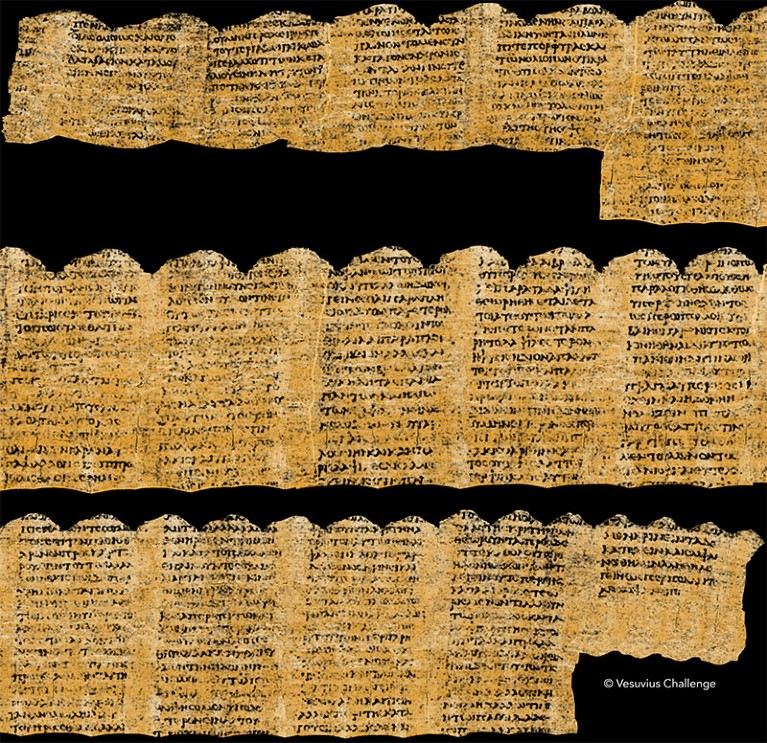Post Reply
1 of 1
AI challenge contest won, used to decipher Herculaneum papyri
1,685 Views |
4 Replies |
Last: 12 days ago by P.H. Dexippus
Very cool.
My youngest son is going start university in Rome this fall. He's looking to study history and archaeology.
Amazing how this new tech is helping such an old field of study.
My youngest son is going start university in Rome this fall. He's looking to study history and archaeology.
Amazing how this new tech is helping such an old field of study.
Related
New frescoes found in ash of Pompeii 2,000 years after city wiped out by Mount Vesuvius eruption

https://www.cbsnews.com/news/pompeii-new-frescoes-found-2000-years-after-mount-vesuvius-eruption/
New frescoes found in ash of Pompeii 2,000 years after city wiped out by Mount Vesuvius eruption

https://www.cbsnews.com/news/pompeii-new-frescoes-found-2000-years-after-mount-vesuvius-eruption/
Ancient text reveals details of Plato's burial place and final evening
https://www.cnn.com/2024/04/30/style/plato-herculaneum-papyrus-scrolls-intl-scli-scn/index.htmlQuote:
The latest revelation is that Plato is believed to have been buried in a secret garden near the sacred shrine to Muses inside the Platonic Academy of Athens that had been reserved for him, according to Graziano Ranocchia, professor of Papyrology at the Department of Philology, Literature and Linguistic at the University of Pisa.
It was previously only known that he was buried in the academy, but not specifically where, Ranocchia told CNN Tuesday.
The Platonic Academy was destroyed in 86 B.C. by Roman general Sulla.
The text also provides more detail about Plato's final night and he wasn't a fan of the music that was played.
It had previously been thought that the so-called "sweet notes" played by a slave woman from Thrace were pleasing to Plato, experts said at a presentation in Naples last week.
But the texts now reveal that in fact, despite running a high fever on his deathbed, he found that the flute music had a "scant sense of rhythm," according to Ranocchia, who said he made the comments to a guest from Mesopotamia.
"He was running a high fever and was bothered by the music they were playing," Ranocchia said.
The newly deciphered text also gives further clarity to the circumstances surrounding how Plato was sold as a slave in either 399 BC after the death of Socrates or in 404 BC on the island of Aegina after the island was conquered by the Spartans, Ranocchia said in the presentation in Naples. Previously, it was thought he had been sold into slavery in 387 BC while in Sicily.
Featured Stories
See All
41:12
4h ago
3.0k
15:25
6h ago
4.2k
Texas A&M lefty Shane Sdao named SEC's Co-Pitcher of the Week
by Richard Zane


